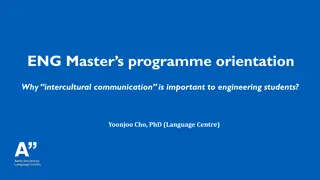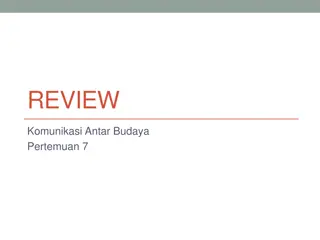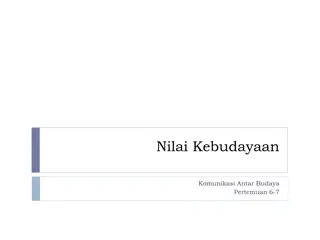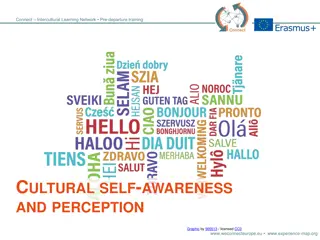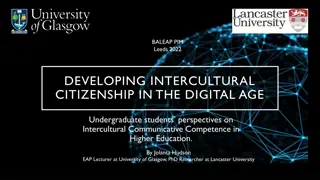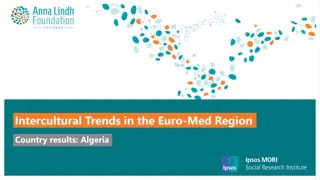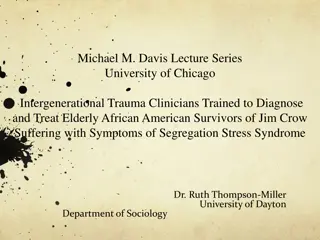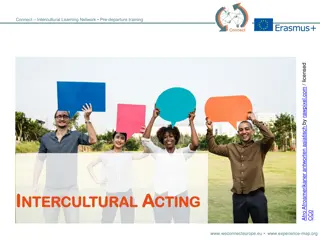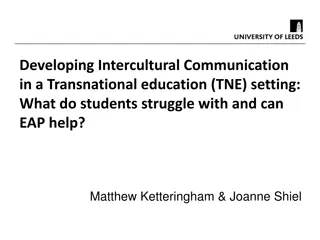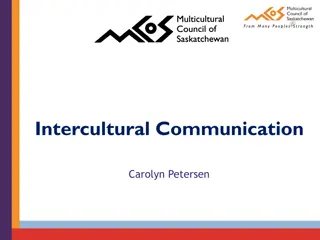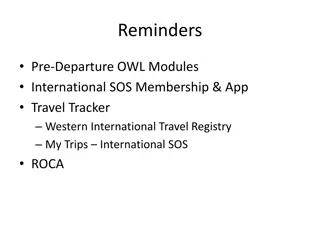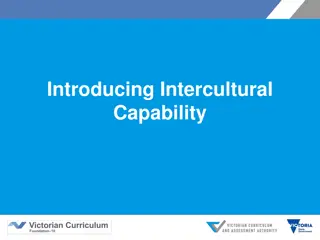
Navigating Intercultural Communication in the Workplace
Explore the complexities of intercultural communication, from challenging assumptions and "othering" to establishing mutual understanding. Discover the importance of tolerance for ambiguity, behavioral flexibility, and empathy in fostering effective cross-cultural interactions.
Download Presentation

Please find below an Image/Link to download the presentation.
The content on the website is provided AS IS for your information and personal use only. It may not be sold, licensed, or shared on other websites without obtaining consent from the author. If you encounter any issues during the download, it is possible that the publisher has removed the file from their server.
You are allowed to download the files provided on this website for personal or commercial use, subject to the condition that they are used lawfully. All files are the property of their respective owners.
The content on the website is provided AS IS for your information and personal use only. It may not be sold, licensed, or shared on other websites without obtaining consent from the author.
E N D
Presentation Transcript
The Intercultural Workplace Dr Tania Fahey Palma
Assumptions Assumptions are beliefs rather than objective truth and are usually influenced by a number of subjective factors. For intercultural communication to truly work, people need to assess their assumptions and ask themselves why they hold those ideas or beliefs.
Othering Othering is the process of representing an individual or a social group to render them distant, alien or deviant Coupland (1999:5)
Establishing mutual understanding <DR 2> < DR 1> But we swear quite a lot Swearing in Ireland it s the same. We swear we use worse words that too. <$Female laughter$> Usually in a nice way as well. So I understand that concept. < DR 2> Of course you are right. You get things out. <DR 1> You do but it s weird you come to a nice Presbyterian place like <$Laugh> this+ <Multiple> [laughter] <Dr 1> +you ve got to be very careful what you say.
Weather Talk < Dr 1> < Dr 2> < DR 1> Exactly yeah. Are people in Spain always talking about whether like we are or? Probably not such a big well it's better. < DR 2> It's not a big <$U> = < Dr 1> <$OL> No < DR 2> = this kind of thing so < Dr 1> Yeah it's a major major topic That s not very good is it. Pissing Rain At least it's how we feel not how we
FIKA Making time for friends and colleagues to share a cup of coffee or tea and a little something to eat
IC developed (Prechtl and Davidson, 2007) Tolerance for Ambiguity Behavioural Flexibility Communicative Awareness Knowledge Discovery Respect for Otherness Empathy

